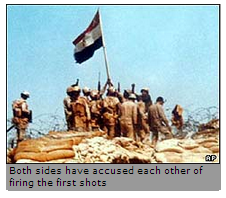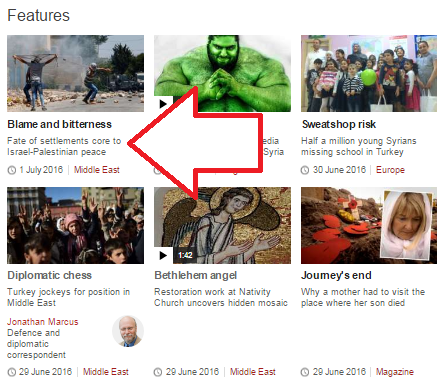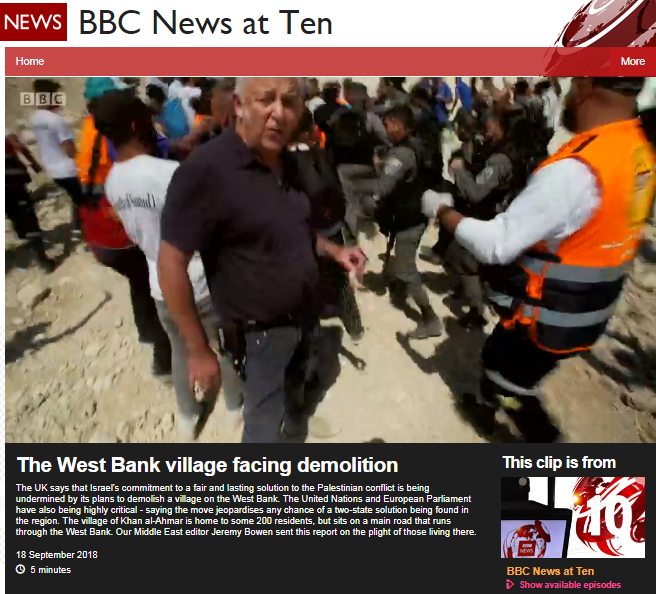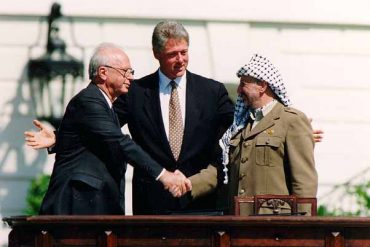Visitors to the BBC News website’s Middle East page on July 27th found the following headline:
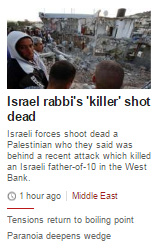
That link led them to an article with a title which similarly suggested to audiences that there was reason to doubt Mohammed Fakih’s involvement in a terror attack reported by the BBC earlier in the month: “Israeli forces shoot dead Palestinian suspected of killing rabbi“. The article opened: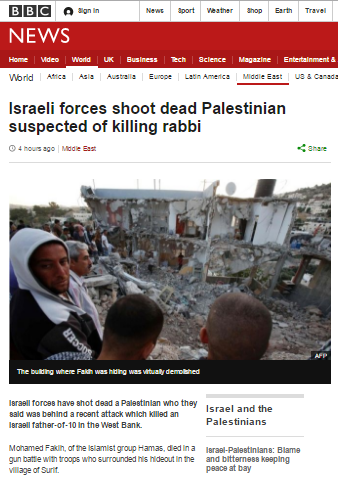
“Israeli forces have shot dead a Palestinian who they said was behind a recent attack which killed an Israeli father-of-10 in the West Bank.” [emphasis added]
However, audiences were not told that one of Fakih’s accomplices had previously identified him as the gunman – as reported by Israeli media.
“The hunt for the rabbi’s killers began proper on July 4, three days after his death, when [Mohammed] Omaireh — a member of the Palestinian Preventive Security Services — was arrested. He told Shin Bet officials during questioning that it was he who drove the car on the night of the attack, but that it was Fakih who had actually fired the shots.”
Readers of the report were told that:
“Three other suspects were arrested in the night-time operation. […]
The Israeli military said the three Palestinians who were arrested were linked to the ambush on the car and were “members of a terrorist cell with ties to Hamas”.
A spokesman for the Israeli prime minister said a member of the Palestinian security forces who was recently arrested had driven Fakih to the location of the attack.”
According to the IDF the three were arrested “earlier this month” rather than during the operation which is the topic of this article and it was not clarified to readers that the “member of the Palestinian security forces” is also a member of Hamas.
“The army said the three other cell members — Fakih’s brother, Sahir; their cousin Muaz Fakih; and Mohammed Omaireh — all belong to the Hamas terror group, which rules the Gaza Strip and has seen growing popularity in the West Bank.”
The BBC article describes Fakih as follows: [emphasis added]
“Mohamed Fakih, of the Islamist group Hamas, died in a gun battle with troops who surrounded his hideout in the village of Surif. […]
Hamas said Fakih belonged to its armed wing, the the [sic] Izz al-Din Qassam Brigades.”
Readers were not informed that:
“Fakih was imprisoned in the past for planning terror attacks along with others while he was a member of the terror organization Islamic Jihad. While in prison, he joined the ranks of Hamas’s military wing, the Izz ad-Din al-Qassam Brigades.”
In short, in a report concerning a terrorist cell linked to a proscribed terror organisation which carried out a fatal terror attack on Israeli civilians, the BBC once again refrained from using any form of the word ‘terror’ itself, with the sole use of the term ‘terrorist’ found in a quote preceded by the qualifier “The Israeli military said”. Apparently the BBC was once again afraid of making a “value judgement“.
Related Articles:
BBC News finds terror (without quotation marks) in Europe
The continuing disservice of the BBC’s black and white narrative
Behind the BBC’s ‘lone wolf’ portrayal of terrorism in Israel

